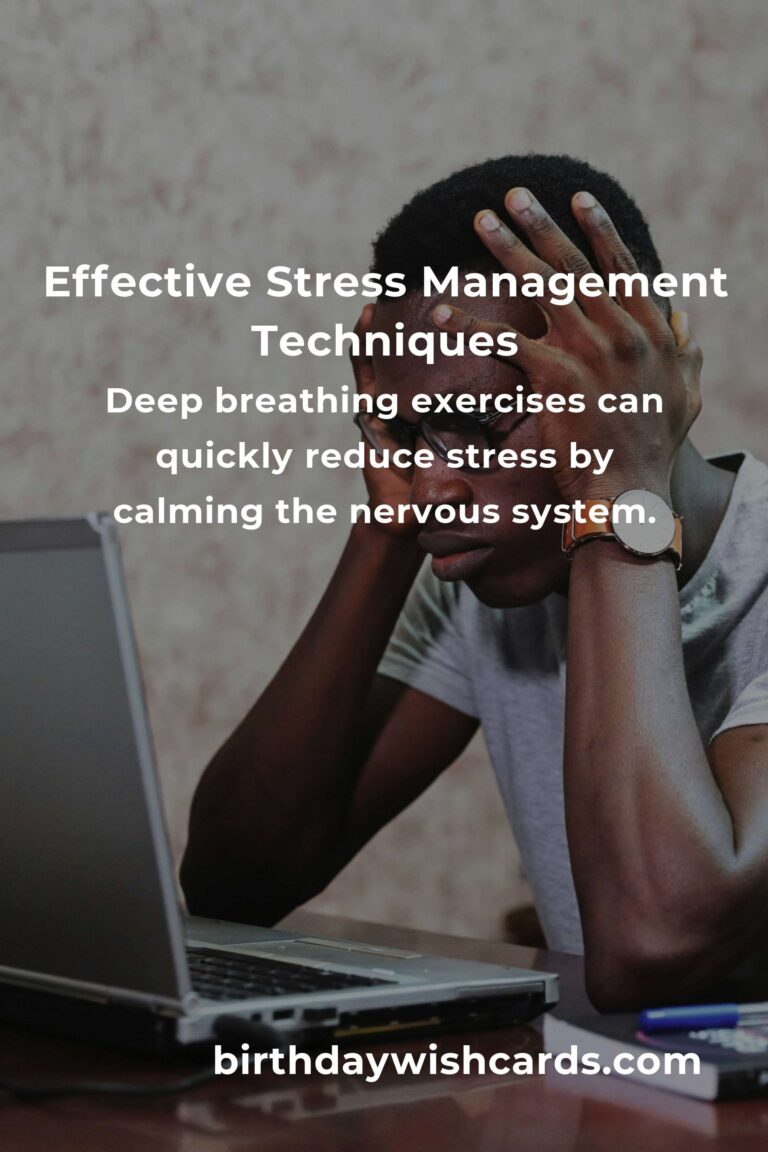
Stress is an inevitable part of life, but the way we manage it can make a significant difference in our overall well-being. Effective stress management strategies not only improve mental health but also enhance productivity and quality of life.
Understanding Stress and Its Impact
Stress is the body’s reaction to any change that requires an adjustment or response. It can be triggered by a variety of factors, including work pressure, relationships, and financial issues. Chronic stress can lead to severe health problems such as heart disease, depression, and obesity.
Lesson 1: Mindfulness Meditation
Mindfulness meditation involves focusing on the present moment without judgment. It helps in reducing stress by promoting relaxation and enhancing self-awareness. Practicing mindfulness can lead to improved mental clarity and emotional stability.
Lesson 2: Regular Physical Activity
Engaging in regular physical activity is a powerful stress reliever. Exercise increases the production of endorphins, which are natural mood lifters. It also improves sleep, boosts self-confidence, and reduces symptoms of anxiety and depression.
Lesson 3: Healthy Eating
A balanced diet plays a crucial role in stress management. Consuming foods rich in vitamins and minerals supports brain health and stabilizes mood. Avoiding excessive caffeine and sugar can help prevent mood swings and irritability.
Lesson 4: Time Management
Effective time management involves setting priorities and organizing tasks to minimize stress. Creating a daily schedule and setting realistic goals can prevent feelings of being overwhelmed and help maintain work-life balance.
Lesson 5: Adequate Sleep
Sleep is essential for the body to repair and recharge. Lack of sleep can increase stress levels and negatively affect cognitive functions. Establishing a regular sleep routine and creating a restful environment can enhance sleep quality.
Lesson 6: Social Support
Having a strong support network can buffer against stress. Sharing feelings with friends, family, or support groups can provide comfort and relieve tension. Building meaningful relationships enhances emotional well-being and resilience.
Lesson 7: Breathing Exercises
Deep breathing exercises can quickly reduce stress by calming the nervous system. Techniques such as diaphragmatic breathing and alternate nostril breathing increase oxygen flow and lower heart rate, promoting relaxation.
Lesson 8: Creative Outlets
Engaging in creative activities like painting, writing, or playing music can serve as an excellent stress outlet. These activities allow for self-expression and distraction from stressors, contributing to mental relaxation.
Lesson 9: Professional Help
Seeking help from mental health professionals can be beneficial for managing stress. Therapy or counseling provides tools to cope with stress effectively and address underlying issues. Professional guidance can lead to significant personal growth.
Lesson 10: Laughter and Humor
Laughter is a natural stress reliever that reduces cortisol levels and boosts endorphins. Incorporating humor into daily life through comedy shows, funny books, or social interactions can lighten the mood and improve mental health.
Lesson 11: Mindful Acceptance
Accepting things that cannot be changed reduces stress associated with resistance. Mindful acceptance involves acknowledging feelings and situations without judgment. This practice fosters a sense of peace and reduces anxiety.
Conclusion
Implementing these stress management lessons can lead to a healthier, more balanced life. By adopting these strategies, individuals can better cope with challenges and enhance their overall well-being.
Stress is an inevitable part of life, but the way we manage it can make a significant difference in our overall well-being. Mindfulness meditation involves focusing on the present moment without judgment and helps in reducing stress. Engaging in regular physical activity is a powerful stress reliever that increases the production of endorphins. A balanced diet plays a crucial role in stress management by supporting brain health and stabilizing mood. Effective time management involves setting priorities and organizing tasks to minimize stress. Sleep is essential for the body to repair and recharge, and lack of sleep can increase stress levels. Having a strong support network can buffer against stress and enhance emotional well-being. Deep breathing exercises can quickly reduce stress by calming the nervous system. Engaging in creative activities like painting or writing can serve as an excellent stress outlet. Seeking help from mental health professionals can provide tools to cope with stress effectively. Accepting things that cannot be changed reduces stress associated with resistance.
#StressManagement #MentalHealth #WellBeing #Mindfulness #Exercise #HealthyEating #TimeManagement #Sleep #SupportNetwork #BreathingExercises #Creativity #ProfessionalHelp #Laughter













